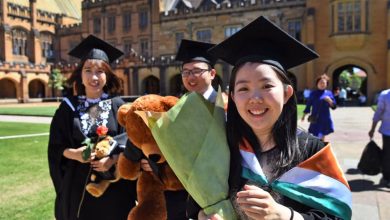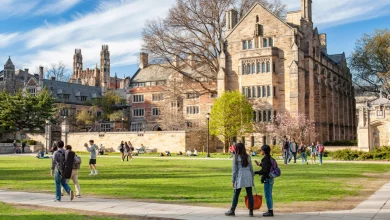Schools and Universities in Philipines that Accept HND Certificates, Second Class and 3rd Class for Masters Degree Programs
The Philippines is a vibrant nation known for its commendable higher education system. Many aspirants from around the globe are turning their attention toward the Schools and Universities in the Philippines, especially for pursuing their Master’s degree programs. The inclusive education system in Phillipine allows a wide range of qualifications to be considered for postgraduate studies. Among these are HND (Higher National Diploma) certificates, as well as undergraduate degrees with Second Class and Third Class honors.
This makes the Philippines an attractive destination for international students who possess these qualifications and are aiming to further their education.
Criteria For Master’ Degree In Schools and Universities in the Philippines
Gaining admission into a Master’s degree program in the Philippines requires applicants to meet certain criteria that showcase their readiness and qualification for postgraduate study. These criteria are designed to ensure that candidates can handle the academic rigors of a Master’s program and contribute meaningfully to their field of study. Below is a detailed list of the general admission requirements that schools and universities in the Philippines usually ask for from candidates, including those with HND certificates, Second Class, and Third Class undergraduate degrees:
- Grade Point Average (GPA): Many institutions have a minimum GPA requirement for admission into Master’s degree programs. While specific GPA requirements vary, some schools offer more flexible criteria for applicants with Second Class and Third Class degrees, considering additional factors such as work experience or entrance exam scores.
- Entrance Examination: Depending on the institution, applicants may be required to pass an entrance examination. These exams assess the applicant’s general and subject-specific knowledge, serving as a measure of their readiness for graduate-level study.
- Letter of Intent: A written statement or essay that outlines the applicant’s reasons for pursuing a Master’s degree, their academic interests, and their career goals. This personal insight helps the admissions committee assess the applicant’s motivation and suitability for the program.
- Recommendation Letters: Letters from former professors, employers, or professional colleagues that attest to the applicant’s abilities, character, and potential as a graduate student.
Meeting these criteria does not guarantee admission, as competition can be fierce, and each program has its own specific requirements and expectations.
Schools in the Philipines that Accept HND Certificates, Second Class and 3rd Class for Masters Degree Programs
These institutions understand the value of inclusivity and offer various Master’s degree programs tailored to meet the needs of a wide array of students. Here is a list of notable schools in the Philippines known for their flexible admission requirements for Master’s degree programs:
1) Polytechnic University of the Philippines (PUP)
Known for its strong emphasis on practical knowledge and innovation, PUP offers various Master’s programs that are accessible to students with HND Certificates, given that they complete any necessary bridging courses. They also consider applicants with Second Class and Third Class degrees, focusing on the potential for academic growth and professional development.
2) Technological University of the Philippines (TUP)
TUP has made significant strides in technical and engineering education and extends its inclusive policy to its postgraduate programs. The university provides a pathway for HND holders and those with lower undergraduate classifications to pursue advanced studies in their fields of interest.
3) Pamantasan ng Lungsod ng Maynila (PLM)
With a range of Master’s programs in the arts, sciences, and management, PLM is another institution that values diversity in academic backgrounds. Their admission process is designed to assess the overall potential of the applicant, not just their undergraduate grades.
4) Mindanao State University (MSU)
MSU is renowned for its comprehensive programs and research initiatives. The university accommodates students with various qualifications, including HND certificates and lower-class degrees, particularly in programs where practical experience and personal motivation are seen as equally important as academic grades.
5) Ateneo de Manila University (ADMU)
While known for its rigorous academic standards, ADMU offers certain Master’s programs where students with diverse educational backgrounds, including those with HND certificates and lower undergraduate honors, can be considered. These programs often require a review of the applicant’s work experience and a potential interview to gauge their readiness for graduate studies.
These schools represent the progressive and inclusive approach of the Philippine higher education system, emphasizing the potential for success and growth beyond traditional academic metrics. Prospective students are encouraged to directly contact these institutions for more detailed information on specific program requirements and the application process.
Universities in the Philipines that Accept HND Certificates, Second Class and 3rd Class for Masters Degree Programs v
In the Philippines, the spirit of educational inclusivity is not confined to just schools; several universities also showcase a welcoming approach towards students holding HND Certificates, Second Class, and Third Class undergraduate degrees. These institutions are recognized for their commitment to providing opportunities for all students to pursue postgraduate studies, thereby enhancing their career prospects and contributing to the diversity of their academic communities. Here’s a rundown of some prominent universities in the Philippines that cater to such students for Master’s degree programs:
1) University of the Philippines (UP)
As the country’s premier state university, UP offers a range of Master’s programs across various disciplines. The university has a reputation for academic excellence and is open to evaluating applicants with different academic qualifications on a case-by-case basis. UP values the holistic assessment of an applicant’s capabilities, including their work experience and potential to contribute to their chosen field.
2) De La Salle University (DLSU)
DLSU is well-known for its research-oriented approach and modern facilities. It welcomes applicants with HND certificates and lower undergraduate honors for certain Master’s degree programs, especially those that value professional experience alongside academic achievement. Prospective students may need to undergo an assessment to determine their eligibility and any additional requirements for admission.
3) Ateneo de Davao University (AdDU)
AdDU, with its strong Jesuit tradition, emphasizes not only academic excellence but also personal character and social responsibility. The university is open to considering students with a wide range of undergraduate qualifications for its Master’s programs, provided they demonstrate the motivation and aptitude for postgraduate study.
4) Mapúa University
Specializing in engineering and technological programs, Mapúa University has expanded its academic offerings to include a variety of Master’s degrees accessible to students with diverse academic backgrounds. The university assesses each application thoroughly, considering the full profile of the applicant beyond just their undergraduate grades.
5) University of Santo Tomas (UST)
UST, one of the oldest educational institutions in Asia, offers a blend of tradition and innovation in its Master’s degree programs. Recognizing the value of diverse perspectives, UST admits students with HND certificates, Second Class, and Third Class degrees into select postgraduate courses, with some programs possibly requiring supplementary coursework or assessments.
These universities exemplify the inclusive educational philosophy of the Philippines, demonstrating a commitment to providing quality postgraduate education to students from a variety of academic and professional backgrounds.
FAQS
Can I do my Masters with HND certificate?
Yes, it is possible to pursue a Masters degree with a Higher National Diploma (HND) certificate. However, admission requirements may vary depending on the university and the program you’re interested in. Some universities may require additional qualifications or work experience.
What are the requirements in taking a Masters degree in the Philippines?
The specific requirements for taking a Masters degree in the Philippines may vary depending on the university and the program you’re interested in. Generally, applicants are required to have a bachelor’s degree from an accredited institution, meet certain GPA and language proficiency requirements, and provide other supporting documents such as transcripts and recommendation letters.
Does University of Calgary accept HND for Masters degree?
The University of Calgary is a Canadian university and admission requirements may vary depending on the program you’re interested in. It’s best to check with the university for more information on their admission requirements for Masters degree programs.
Can I do Masters with a 3rd class degree?
Yes, it is possible to pursue a Masters degree with a third class degree. However, admission requirements may vary depending on the university and the program you’re interested in. Some universities may require additional qualifications or work experience.
Can second class lower apply for masters degree?
Yes, applicants with a second class lower degree may be eligible to apply for Masters degree programs. However, admission requirements may vary depending on the university and the program you’re interested in. Some universities may require additional qualifications or work experience.
Conclusion
The prospect of pursuing a Master’s degree in the Philippines presents a remarkable opportunity for students from diverse academic backgrounds. The inclusive policies of the schools and universities in the Philippines, as outlined, make it clear that the nation values the potential and ambition of each candidate, irrespective of their prior academic standings. With institutions that are ready to accommodate students holding HND Certificates, Second Class, and Third Class undergraduate degrees, the Philippines is setting a precedent for educational inclusivity on a global scale









